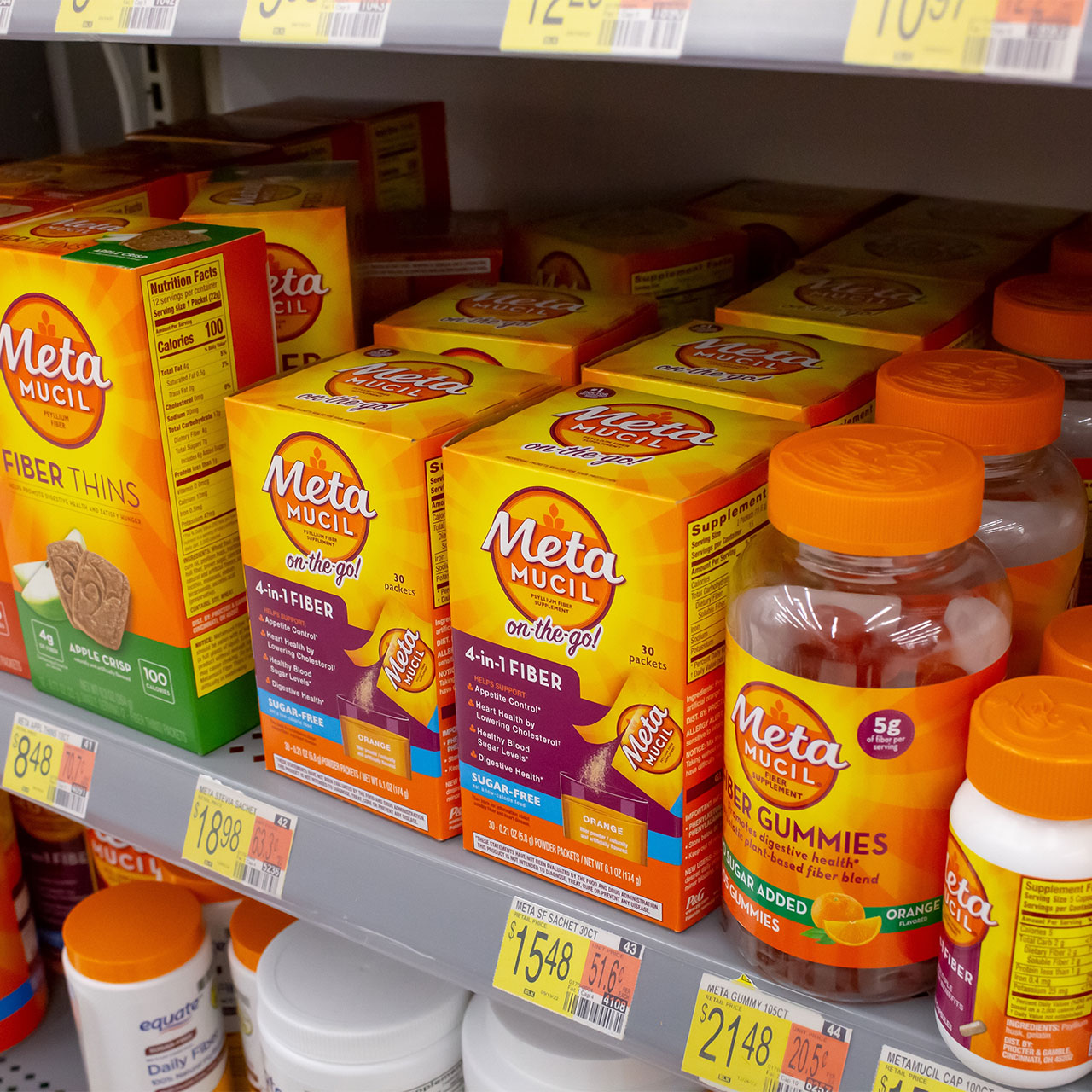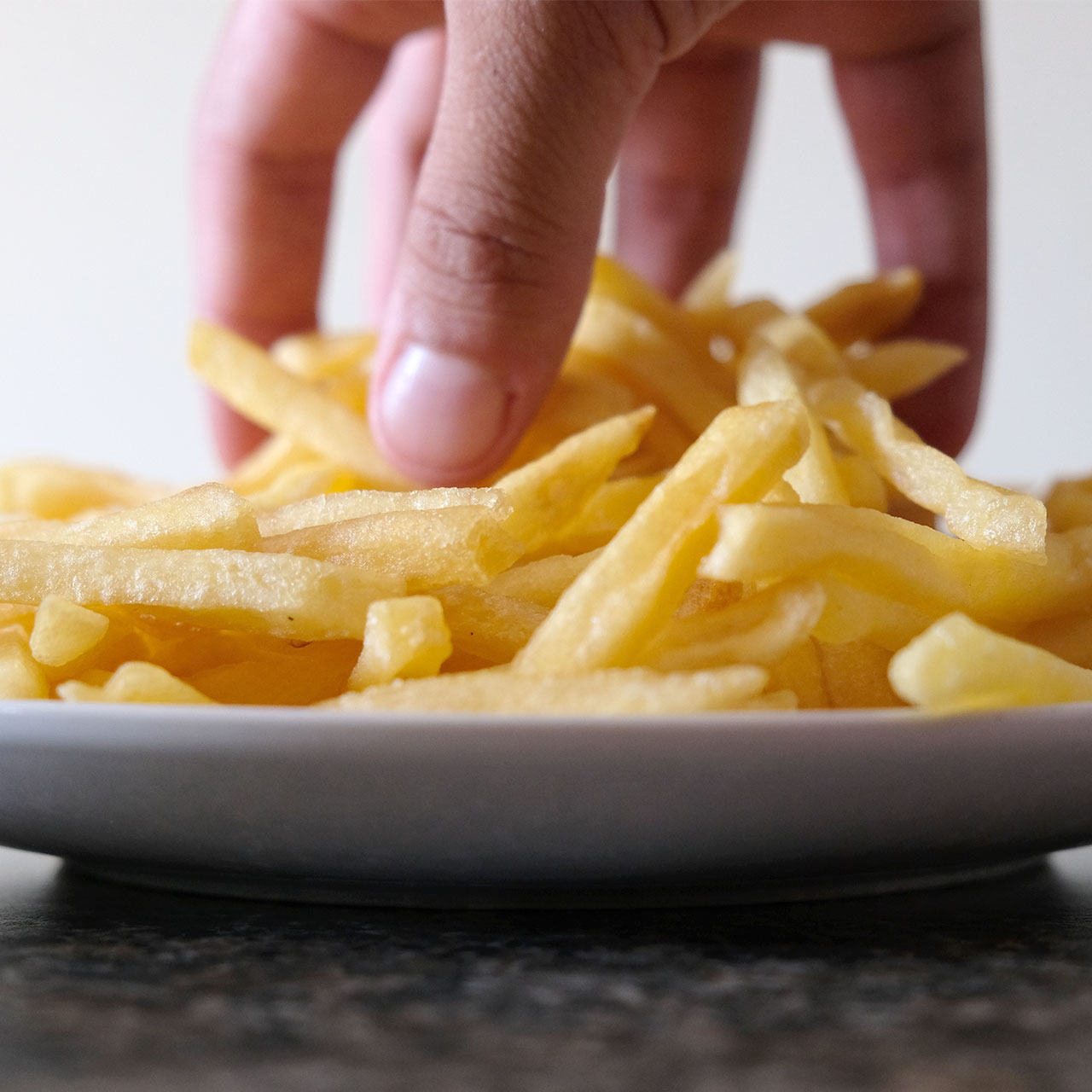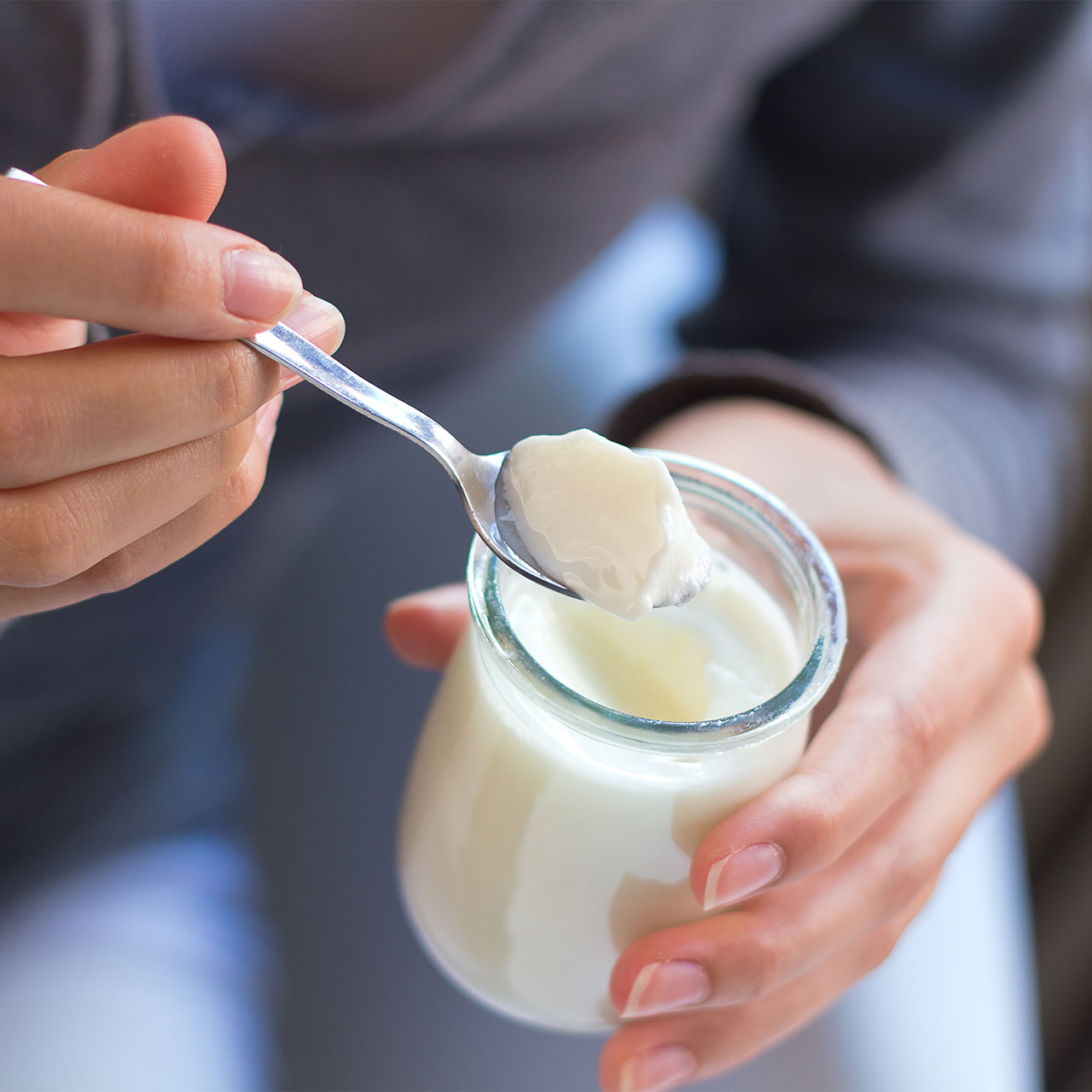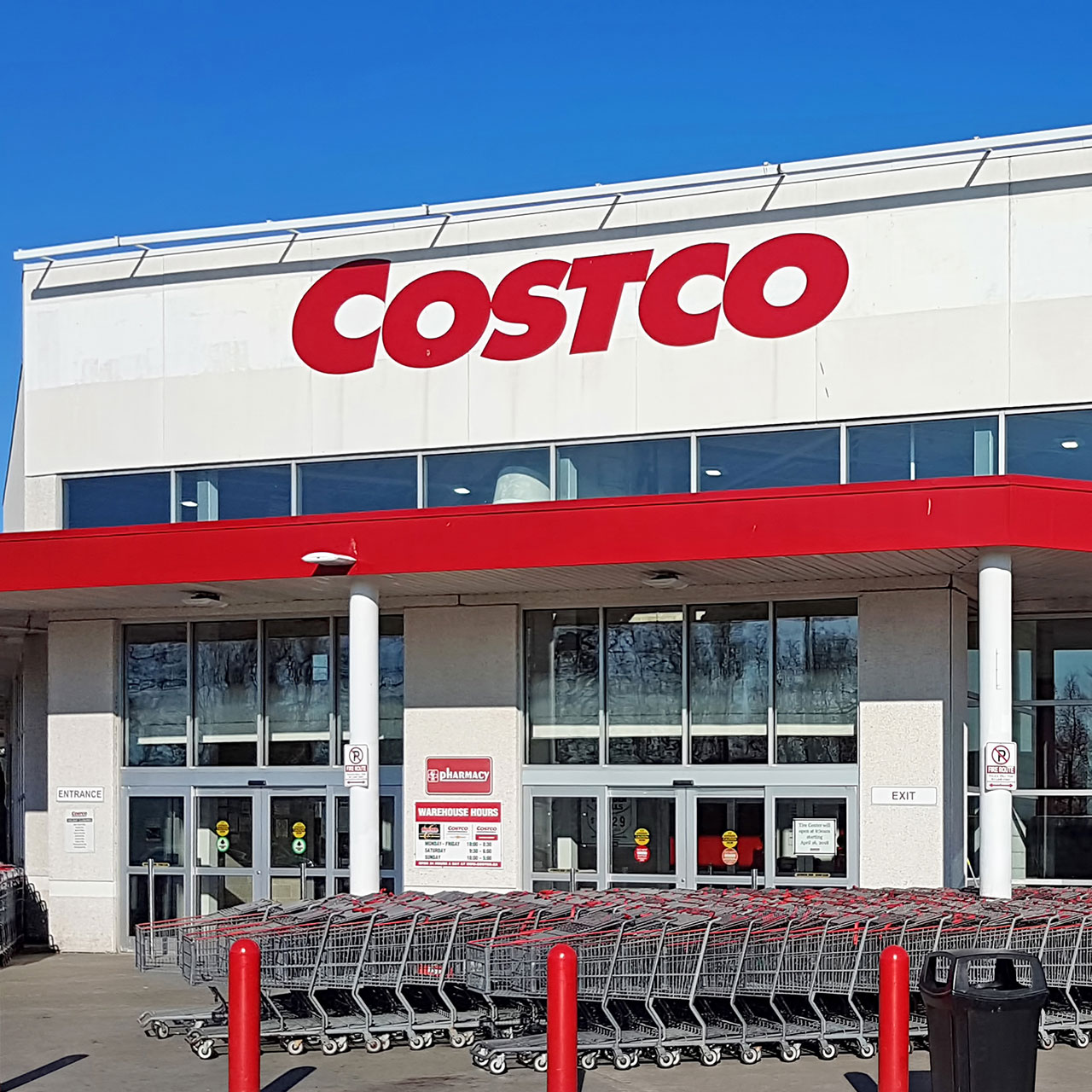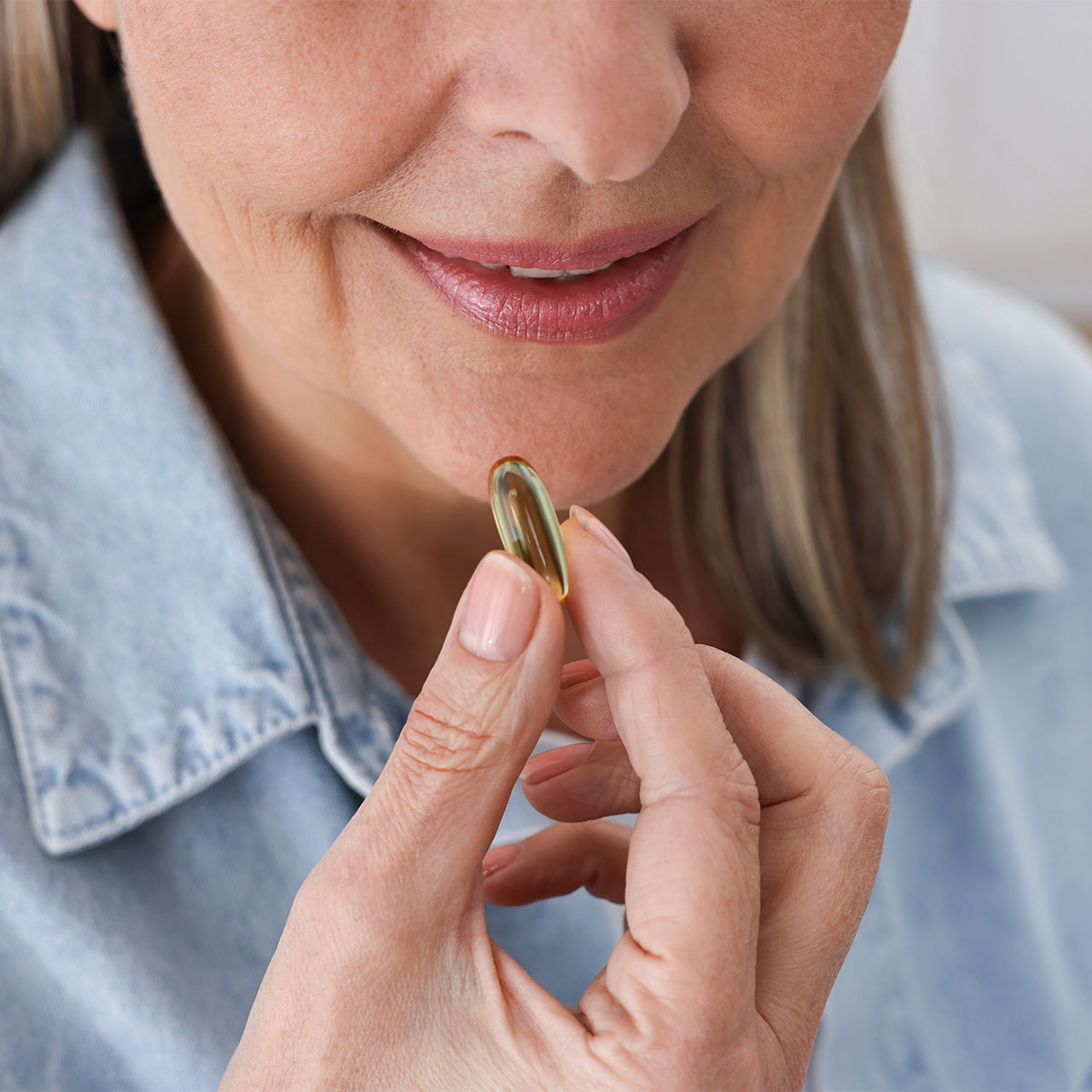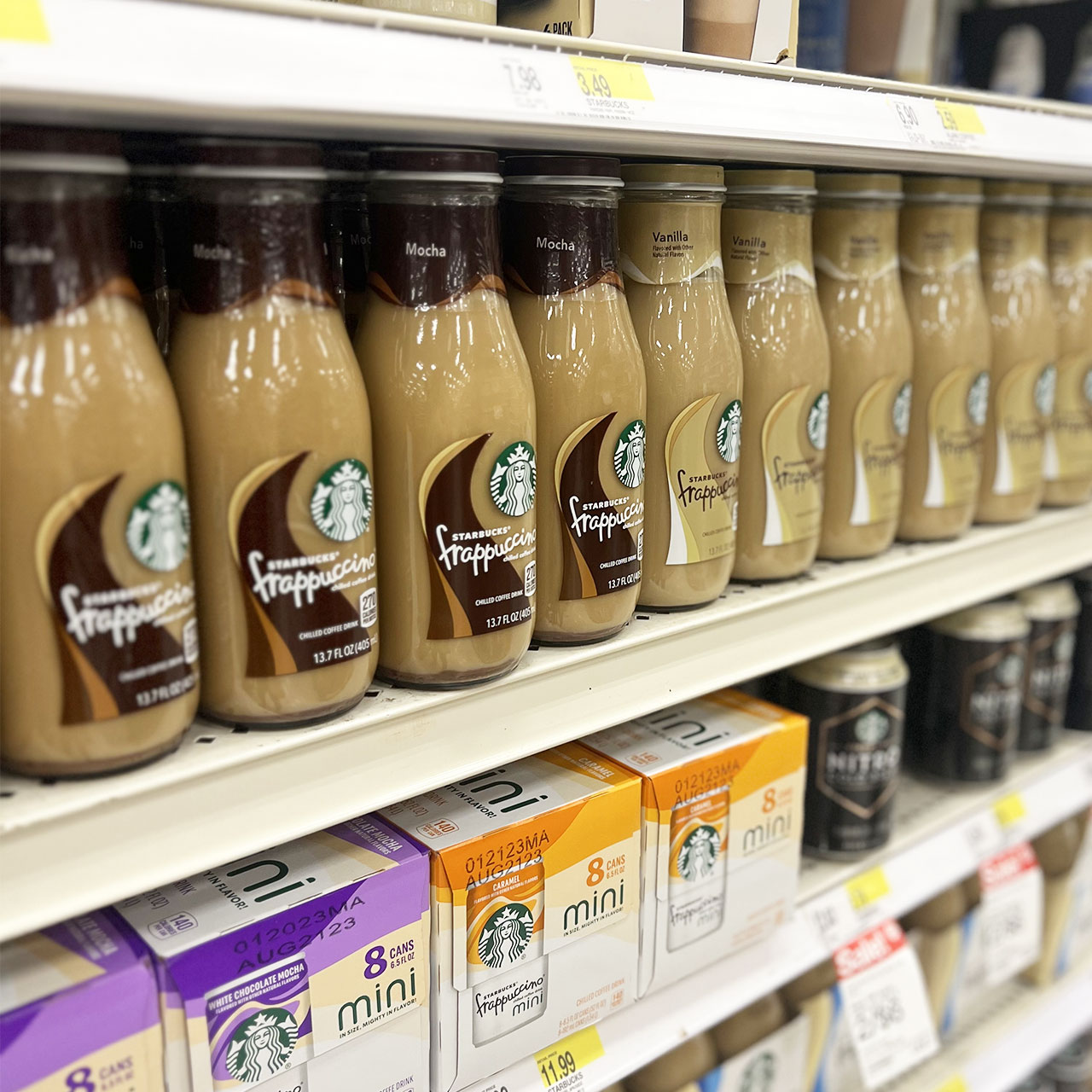In many cases, taking supplements can be a great way to make up for any nutrients you’re not getting from whole foods and keep your body functioning to the best of its ability. However, not all supplements are created equal. Some can take a toll on your health and safety, especially when consumed in excess. One area of your body that could be unexpectedly impacted is your digestive system—even when you’re taking supplements that are aimed to improve your gut health.
To discover a few of the supplements you should exercise the most caution with if you want to avoid digestive issues, we spoke to Dr. Harsh Sheth. He told us that excessive intake of fiber, iron, and herbal laxatives could pose a risk to your digestion. Learn more about the risks of each below.


1. Excessive Fiber Supplements
Fiber is well-known for its ability to regulate digestive health and aid in regular bowel movements. If you struggle with digestion, you may reach for a fiber supplement to help. However, it's important to be careful with these supplements, as consuming an excessive amount could do more harm than good. Dr. Sheth warns that an abrupt increase in fiber intake through supplements can lead to bloating, gas, and discomfort, as well as interfere with the absorption of certain nutrients.
To ensure you don't go overboard on the fiber and minimize the risk of gut-related issues, he recommends gradually increasing your fiber intake and getting it from whole foods such as fruits, vegetables, and whole grains, rather than supplements. "This method ensures a balanced intake of fiber alongside other nutrients essential for gut health," he says. Noted!
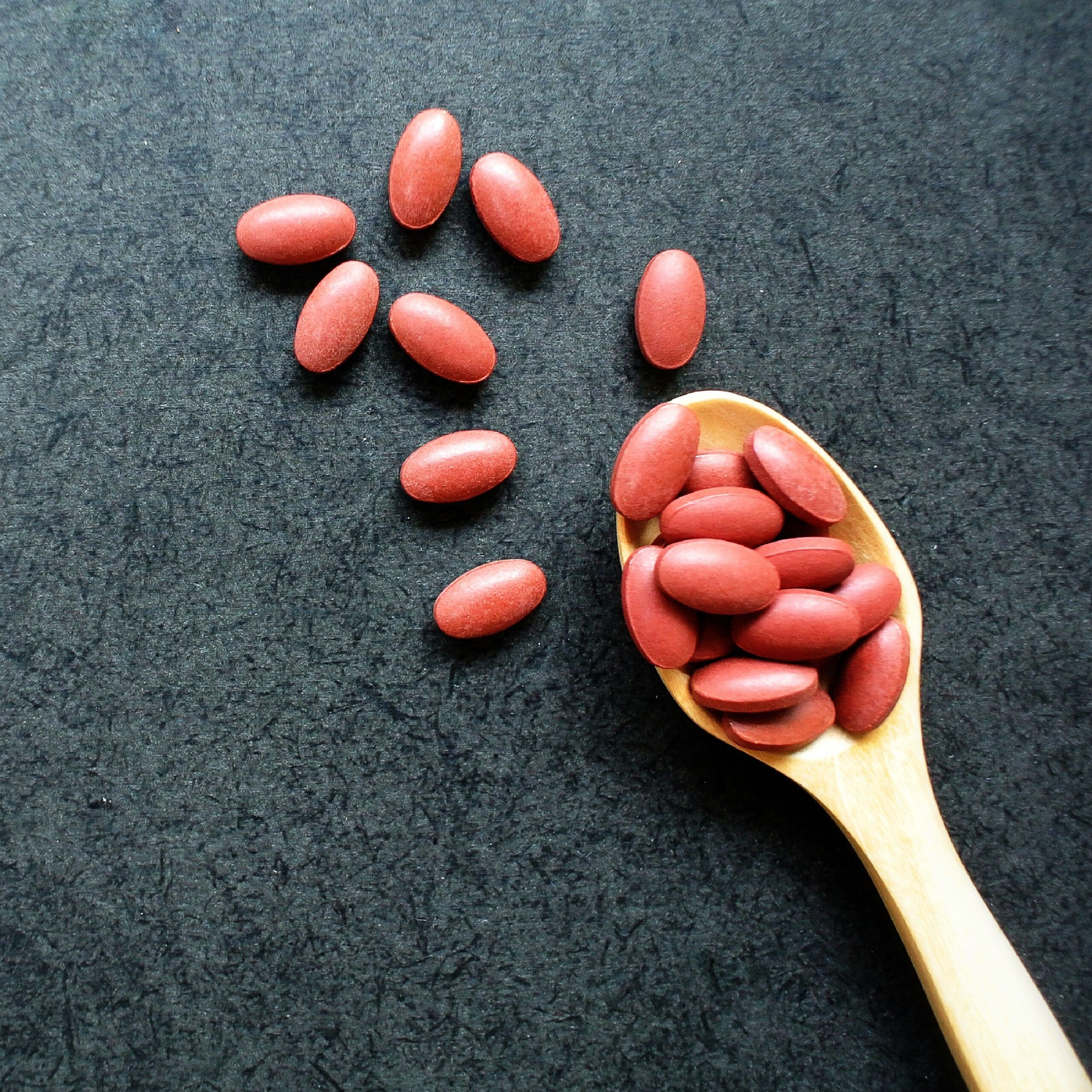
2. High-Dose Iron Supplements
Iron is a crucial component of any healthy diet. Your body relies on this mineral for a range of functions, from the production of red blood cells to the transportation of oxygen. But just like fiber, excessive intake of iron supplements could lead to digestive issues. Dr. Sheth warns that consuming high doses of iron could lead to the proliferation of pathogenic bacteria in the gut. This may result in issues like inflammatory bowel disease (IBD) or constipation.
Lisa Richards, dietitian and creator of The Candida Diet, seconds this. "When iron supplements are consumed, unabsorbed iron can accumulate in the intestines, leading to irritation and inflammation," she says. "This irritation may cause digestive discomfort, including bloating, gas, and constipation. Some forms of iron supplements, such as ferrous sulfate, are known to be more likely to cause gastrointestinal side effects."
"Iron requirements should ideally be met through dietary sources like leafy greens, lentils, and red meat," advises Dr. Sheth. If supplementation is necessary, opting for lower doses and seeking guidance from a healthcare professional can help tailor intake to individual needs while minimizing the risk of gut-related complications.
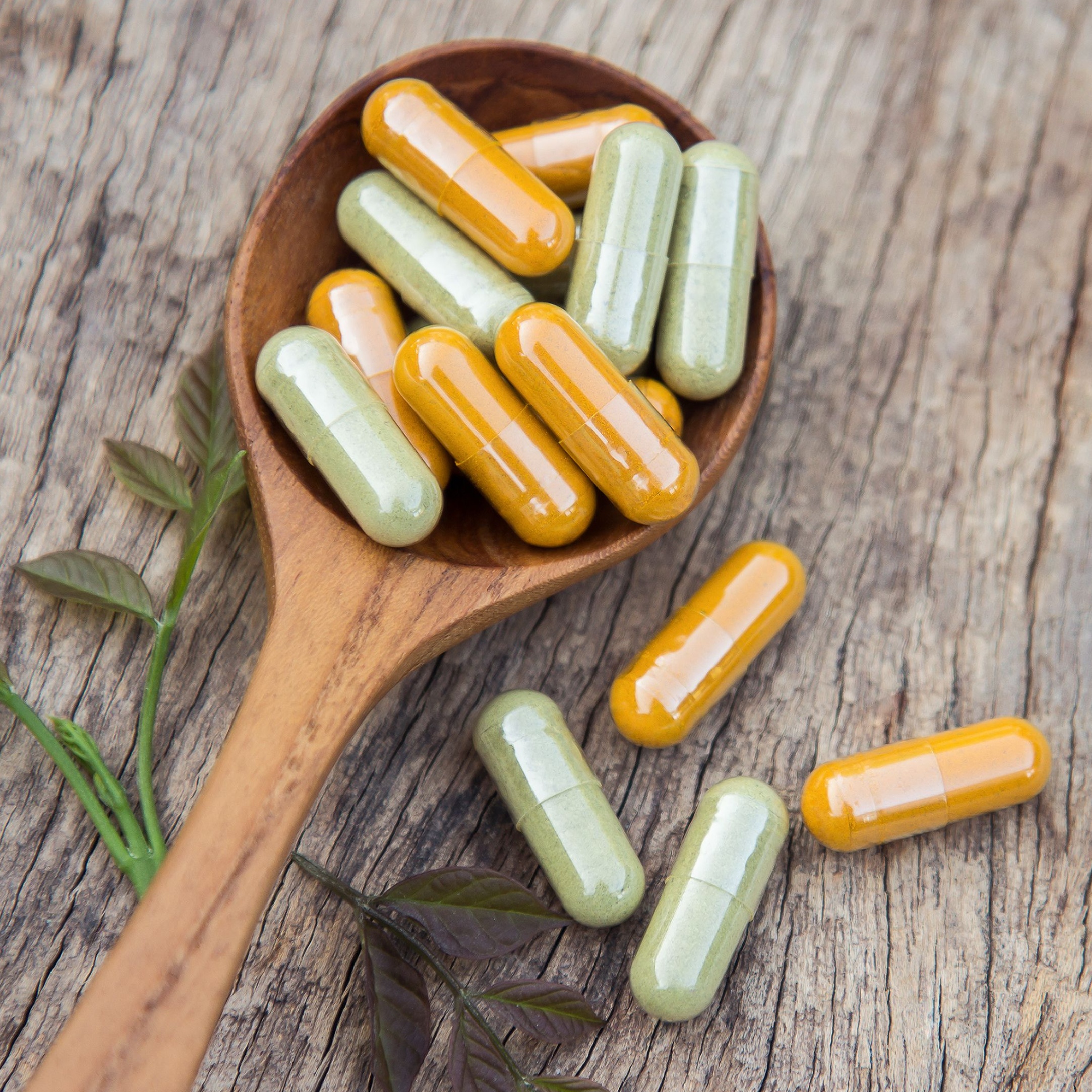
3. Certain Herbal Laxatives
In addition to upping your fiber intake, taking herbal laxatives is another measure you may resort to if you're having digestive troubles. However, these natural remedies could come with a cost when it comes to your gut health. Dr. Sheth tells us that regularly using herbal laxatives with ingredients like senna or cascara can irritate your gut's lining. They may even lead to laxative dependency, making it difficult to have regular bowel movements without taking them.
"Regular use can result in an imbalance in electrolytes and dehydration, further exacerbating gut health issues," he adds. As we mentioned before, your best bet is to increase your dietary fiber intake, along with proper hydration and ample exercise. Probiotics are another good idea for a healthy gut.

Bottom line
Most supplements, such as iron and fiber, are safe in moderation, especially if you have a deficiency or aren't getting enough of these nutrients in your diet. However, it's important to remember that too much of a good thing is a bad thing, and this is true of supplements to. For this reason, it's crucial to exercise caution with these supplements if you want to keep your digestive system happy and healthy.
READ MORE: How To Improve Gut Health Naturally: 12 Tips To Consider





